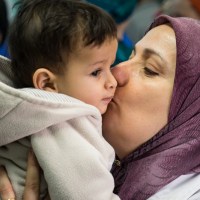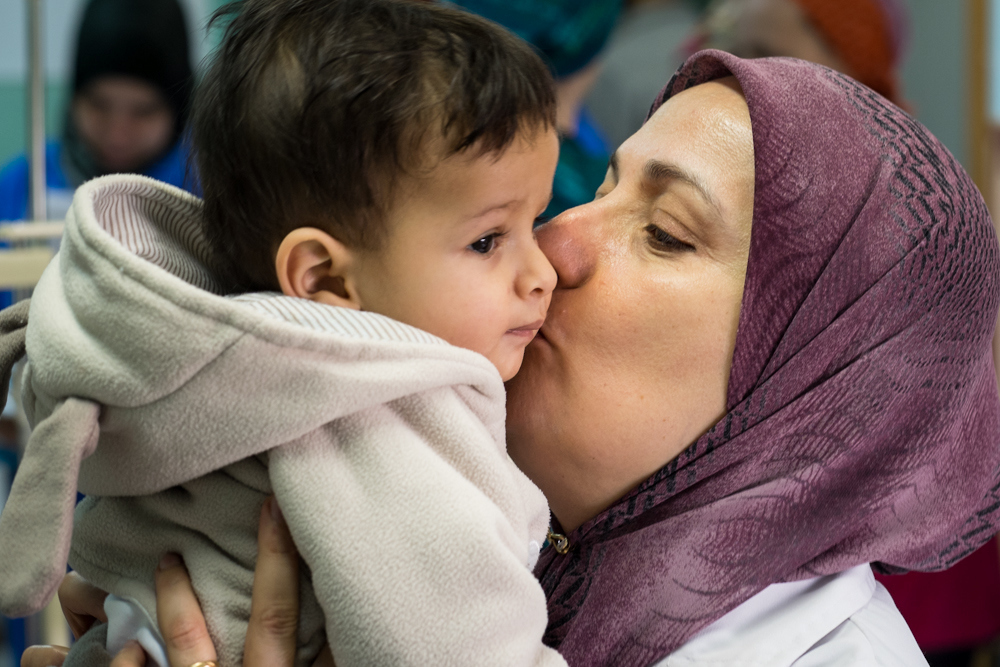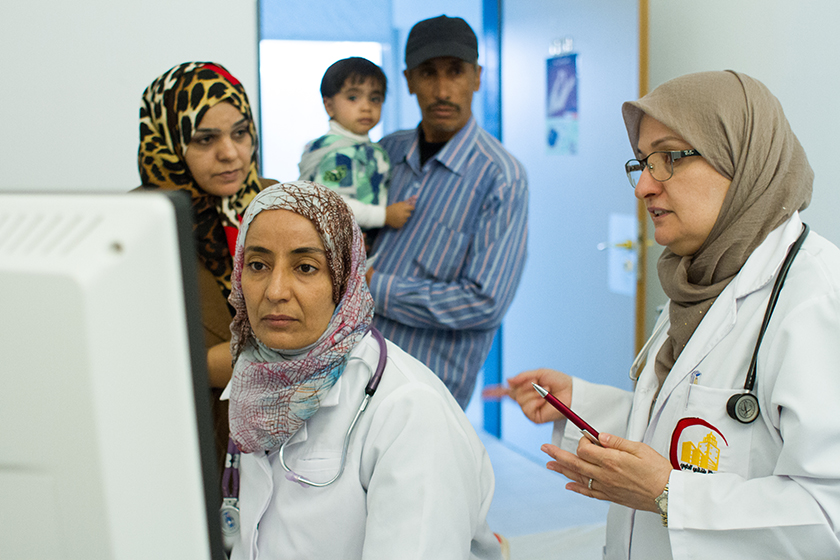
Pediatric heart surgery was our very first empowerment program. In our earliest days, we were laser focused on providing life-saving heart surgeries for Iraqi children who were born with congenital heart defects due to chemical warfare. We sent children and their families to neighboring countries to receive the care they couldn’t get in Iraq.
We soon realized that while children were getting care, we were missing an opportunity to impact the country of Iraq. So we changed our model.
We brought some of the world’s best pediatric surgical teams to Iraq to train local doctors and nurses in the specialized skills they needed to care for children born with complicated heart defects. And that one change impacted the quality of healthcare in Iraq for decades to come.
When we expanded our heart surgery program to Libya—a country also crushed by war and unable to care for their young heart patients—we made an amazing discovery. Most of the Libyan doctors specializing in pediatric heart care are women!
That means, when you support our heart surgery programs and medical training missions, you not only save children’s lives, you also empower these amazing women, to help mend their country.
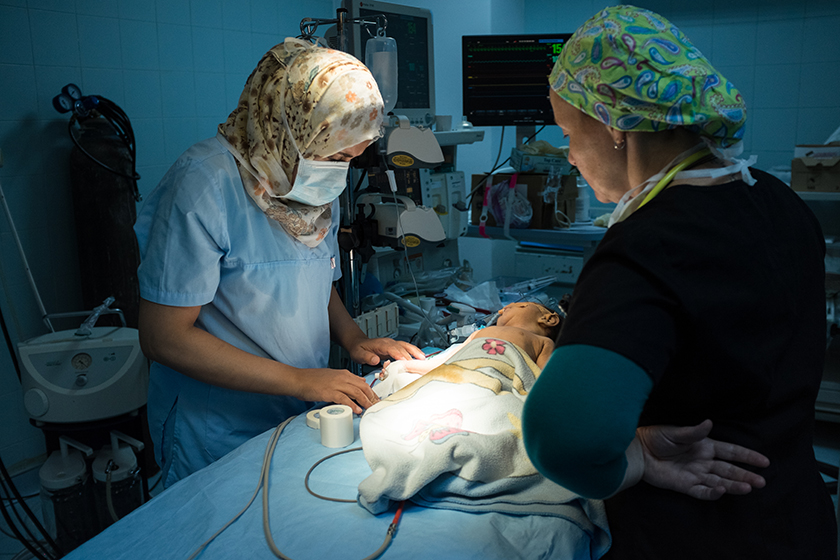
Dr. Wejdan is one of the incredible Libyan surgeons we are helping to train in Libya.
When she was just 5 years old, she told her mother she wanted to be a heart surgeon someday. Her mother had no idea that her daughter even knew what a surgeon was!
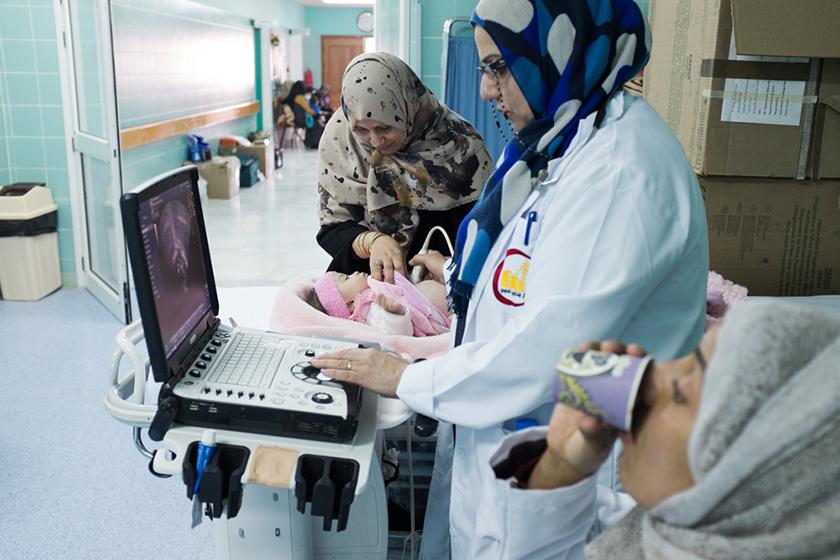
Dr. Rasmia didn’t intend to become a cardiologist: “My teacher in school, he asked me to finish in engineering because I was fantastic in engineering.” But Rasmia changed the direction of her life completely when tragedy struck.
“My father died a sudden death, and he collapsed in front of me when I was in second-year high school. So I decided, from that time, that I must be a doctor to save people because I couldn’t save my family.”
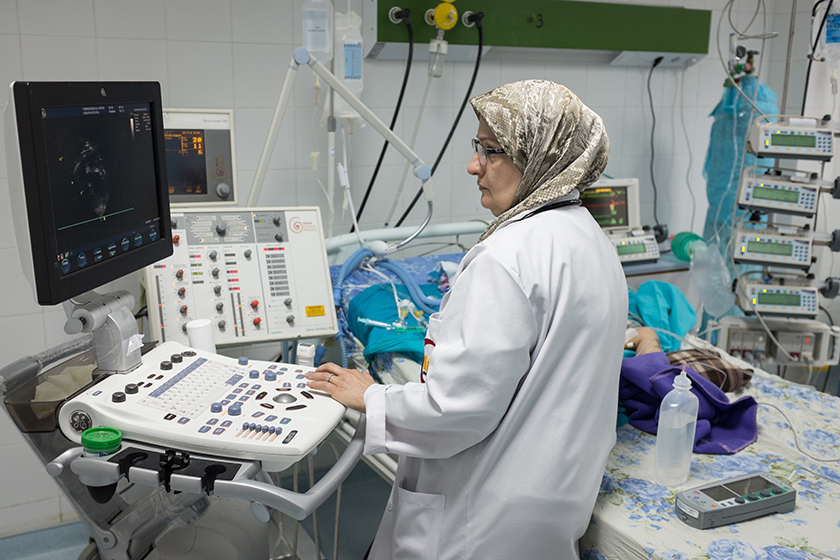
Dr. Naima, one of the top cardiologists in Libya, was hand-picked by her mentor. “There were a lot of choices for me” she explained.
“By chance, there was a doctor called Dr. Abdul Mahmood. He was the first pediatric cardiologist in Libya. He was working at that time in the hospital, and I was working in his unit.”
“He, this doctor, chose us…he sent my name and the name of Rasmia to the people controlling the hospital.” He said ‘I need these two doctors to come and train…to be a pediatric cardiologists in the future.’ Really, he was the one to choose us.”
After two years of training, teaching his mentees how to diagnose heart problems in children, Dr. Mahmood left Libya. He left Dr. Naima and Dr. Rasmia as the only ones to carry on the work. “So, at that time, there was no choice at all for us”. Dr. Naima said, “…we had to continue. And it started like that. It was really hard.”
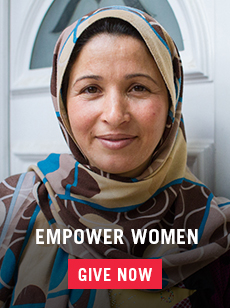
In the late 1990’s there was no internet in Libya to consult. Dr. Naima and Dr. Rasmia no longer had a mentor to learn from. And they had no colleagues to share the burden.
“Really, our teachers were the patients.”
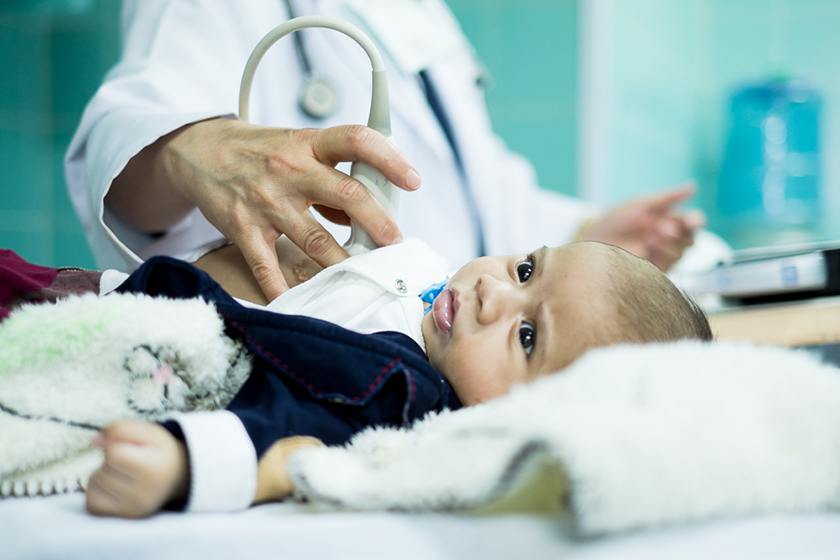
Conflict and sanctions left Libya cut off from much of the world, and most aid groups pulled out.
The international doctors and nurses you send to Libya on medical missions provide the only opportunity for local pediatric cardiologists to learn more in their field.
These Libyan doctors work hard and spend weeks away from their families to take full advantage of the learning opportunities these missions provide.

During these trips, the cardiologists who diagnose these defects take time to observe surgeries—to learn as much as possible about the hearts they typically only see on a screen. The heart surgeons sit in on diagnosis sessions—to learn from the imaging of individual hearts before a cut is ever made. Everyone attends post-surgical sessions in the ICU, to give feedback on surgeries, the progress of patient healing, and possible complications.
The doctors who go on and attend these medical missions work hard to create a climate of collaboration—there is no competition here. They encourage each other and push each other forward. They work together to give patients the very best care, and to learn as much from each other as possible.
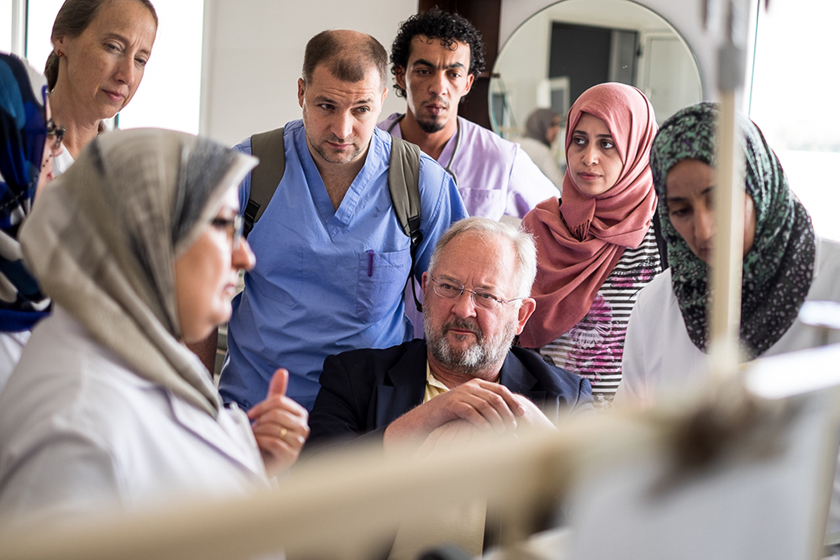
Their passion and collaborative approach is creating a strong program and an environment for constant learning and growth. Their openness makes space for the next generation of medical residents, who come whenever they can spare the time, to observe and learn.
“Naima and I, we were suffering a lot” Dr. Rasmia emphasized “because we were the only ones to do echoes at that time. Now we have a lot of cardiologists. And all of them are female…”
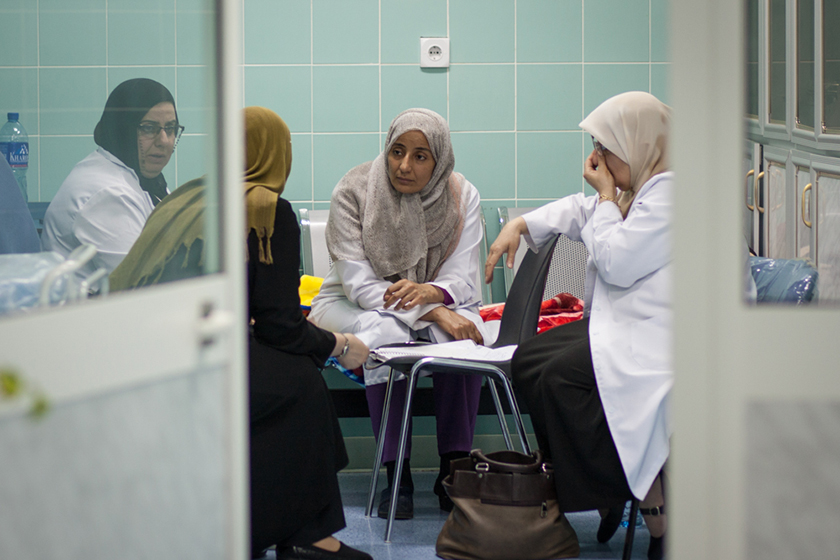
When you empower these Libyan doctors, you send out ripples that change the health care in the whole country. After these medical missions, each doctor goes back to her base hospital and shares her new knowledge and skills with her colleagues. The high standards of professionalism in pediatric cardiac care is spreading across other departments, raising the benchmark for everyone.
And, when you empower these doctors, they empower girls and boys to live! Every one of those children will get the chance to grow up and change their country for the better.
Empowering these Libyan doctors is a high-yield investment—they have already remade their lives and now they are doing the same for others. They are literally saving lives and training others to do the same. They are the perfect example of how empowering women can empower whole communities.
Empower Libya’s female surgeons to heal hearts and rebuild communities.

